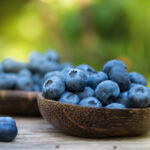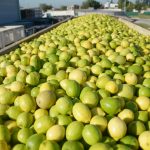Argentine citrus to enter the U.S. market

The Argentina citrus industry expects processing for mandarin and clementine entry to be expeditious to begin exports to the U.S.
As the Argentine citrus industry is amid harvesting and marketing, FreshFruitPortal spoke with the president of the Argentine Citrus Federation (Federcitrus), José Carbonell about this season.
Carbonell comments that citrus was affected by both “high temperature and lack of water, which has resulted in a lower amount of fruit and a smaller size.”
Lemon harvest began 40 days late, "due to lack of size and color; a consequence of the climate which has slowed everything down," says the president of Federcitrus.
Regarding the analysis made of the citrus industry, Carbonell mentions, "the drop in production can reach 25 to 30% less on average in all species. This is a preliminary estimate, which could be even higher".
Despite the not-very-encouraging news regarding the decrease in citrus production. Carbonell commented that there are positive aspects, which make exporters very happy.
"We have just recovered the Mexican market and opened the organic lemon market for the European Union. We are working hard to open the sweet citrus market in the United States, which is very important for the industry as a whole.”
He explained that currently the technical phase is already completed by Argentina and Senasa, so they are in the last instance.
"Right now it's in the hands of U.S. agricultural authorities, we hope to move forward quickly and be able to have the market as soon as possible,” says Carbonell.
Markets
Regarding the current situation of citrus producers and exporters, Carbonell reiterates, "So far we have had lower fresh volumes than in previous years and with a lower packout, but we have a lower volume campaign in oranges, mandarins, and lemons than in previous years."
He explains that the main markets for Argentine citrus, especially lemons, are the United States, Europe, and Russia.
To date, some early mandarins have been exported, but as Carbonell explains, the strength of sweet citrus is late mandarins and Valencia oranges.
"So far orange prices are toned in all markets, and interesting business has been done," says Federcitrus’ president.
Regarding lemons, he mentions that in none of the markets they have observed a relevant increase in prices, and currently, they are fulfilling pre-acquired commitments, while the campaign is taking volume.
Argentina supplies two-thirds of the world's demand for industrial lemon ingredients
"Surely there will be a significant decrease in the production of juice, oil, and lemon peel," says Carbonell.
As for oranges, there has been a recovery in the prices of both fresh and industrial products.
"We hope that this season will be more satisfactory than the previous ones. In this case, possibly the drop in production is compensated with the price, but everything is subject to verification of the harvest and export.”
Industry challenges
Regarding challenges this season, José Carbonell mentions the exchange rate and above all the significant reduction of rainfall in the summer and a period of 40 days above normal temperatures, "has been the combo that caused the drop in production. And then late rains that delayed the ripening process."
Lemon production in northwest Argentina has been in crisis in recent years, which has led to the eradication of plantations.
"The producers who had older, less favored plantations have been eradicated and transferred to other crops. This also influences the drop in production," concludes Carbonell.















































